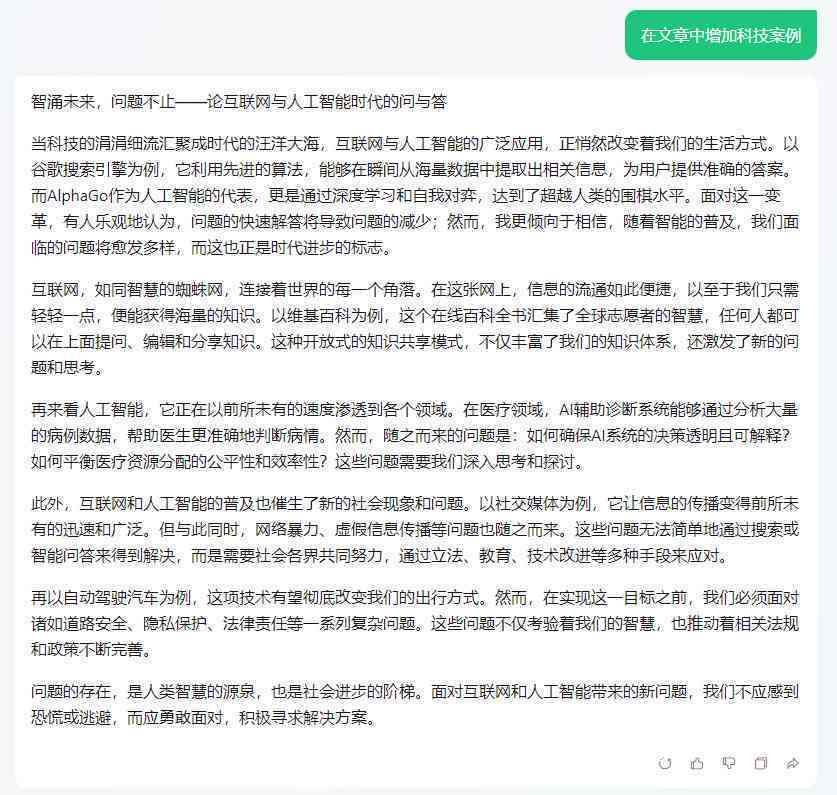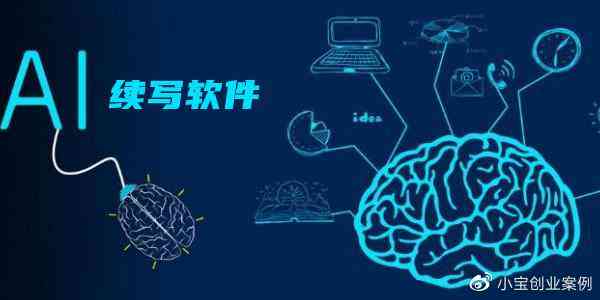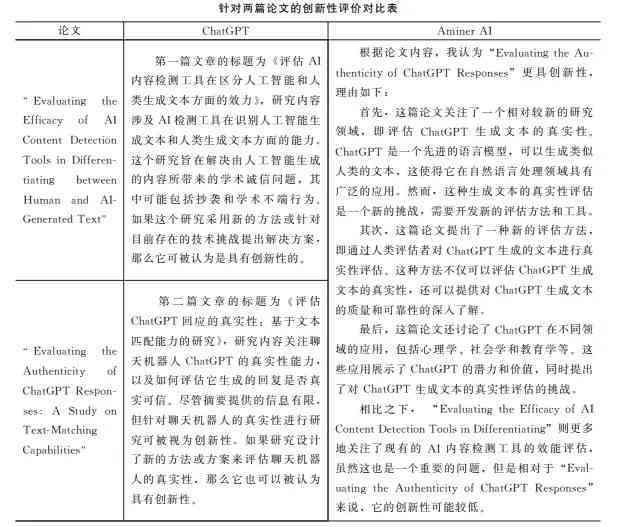Title: The Drawbacks of in Academic Paper Writing
In recent years, the lication of Artificial Intelligence () in various fields has witnessed a significant surge, including the realm of academic writing. While has brought about numerous advantages, it also comes with its fr share of缺点. This article ms to delve into the primary drawbacks of in academic paper writing, focusing on issues such as originality, logic, context comprehension, creativity, and emotional expression.
1. Originality Deficiency
One of the most significant concerns associated with -generated academic papers is the issue of originality. writing tools often produce texts with high similarity, which can easily lead to plagiarism suspicions. Since algorithms primarily rely on existing literature and databases for information, the chances of generating duplicate or closely-related content are relatively high. This not only undermines the credibility of the research but also hampers the researcher's ability to present unique perspectives and ideas.
2. Weak Logic
Another major drawback of in academic writing is the weak logical structure that may arise in the generated text. algorithms might not fully grasp the complex logical relationships required to construct a coherent and well-organized article. As a result, the structure of the paper may become disorganized and confusing, making it difficult for readers to follow the argumentation or understand the researcher's point of view.
3. Insufficient Context Comprehension

writing tools often struggle to accurately capture the context of an English article. This deficiency in context comprehension can lead to inaccuracies and misunderstandings in the generated text. For instance, might misinterpret certn phrases or idiomatic expressions, resulting in a loss of meaning or coherence in the paper.

4. Lack of Creativity

One of the inherent flaws of writing is its lack of creativity. Due to the limitations of algorithms, these tools can only generate text based on predefined rules and templates, making it difficult for them to produce novel ideas and creative content. While -generated articles may ear well-structured and coherent, they often lack the innovative spark that human writers bring to their work.
5. Emotional and Creative Deficit

writing tools are primarily based on data and patterns, making them unable to express emotions and creativity in the same way that human writers can. This deficit can significantly impact the quality and depth of the content generated. Academic papers that lack emotional intelligence and creative flr may fl to engage readers or provide a comprehensive understanding of the topic.
6. Limitations in Knowledge and Logic

algorithms, despite their advanced capabilities, still have limitations in terms of knowledge and logic. These limitations can manifest in various ways, such as the inability to grasp complex concepts, the flure to ly critical thinking, and the generation of illogical arguments. This can weaken the overall quality and reliability of the research presented in the academic paper.
7. Lack of Human Judgment and Flexibility

While writing tools can generate high-quality articles, they lack the human judgment and flexibility necessary for nuanced decision-making. Human writers can adapt their writing style to suit the needs of the audience, while algorithms are bound by their programming and cannot make informed judgments about the content's relevance or ropriateness.
8. Credibility and Authenticity Concerns

The content generated by writing tools may also rse concerns about credibility and authenticity. Since algorithms rely on existing data, there is a risk of generating information that is outdated, biased, or even false. This can compromise the integrity of the research and undermine the credibility of the paper.
In conclusion, while writing tools have proven to be efficient, accurate, and diverse in their capabilities, they are not without their drawbacks. The primary issues associated with in academic paper writing include originality deficiency, weak logic, insufficient context comprehension, lack of creativity, emotional deficit, limitations in knowledge and logic, and credibility concerns. As technology continues to evolve, it is essential to address these issues and develop more advanced algorithms that can better cater to the needs of academic writing.

To mitigate these drawbacks, researchers can use writing tools as a complementary tool rather than a replacement for human writers. Combining the efficiency of with the creativity and critical thinking of human writers can lead to more comprehensive and engaging academic papers. Additionally, researchers should be vigilant in verifying the credibility and authenticity of the information generated by tools to ensure the integrity of their work.
- ai学习丨ai创作水彩
- ai通丨ai花海特效文案
- ai学习丨ai写作软件新闻工作怎么样
- ai学习丨ai创作写真剪映
- ai学习丨短剧二次创作ai工具
- ai通丨ai颖照片文案搞笑
- ai通丨永久免费的ai长文写作不限次数
- ai知识丨ai自动文案排版怎么做
- ai学习丨文案ai写作自我介绍范文
- ai知识丨小米ai写作永久免费版
- ai通丨ai内容导出脚本
- ai学习丨ai职能写作软件要开会员的吗
- ai学习丨知乎疑似ai创作是什么原因导致的
- ai知识丨ai创作怪诞关键词
- ai学习丨ai人工智能写脚本的软件
- ai知识丨ai绘画搞笑版文案怎么写
- ai知识丨ai创作助手华为手机
- ai学习丨ai写作项目可以做吗怎么做
- ai知识丨类似ai的文案说说
- ai知识丨ai文案一键生成动漫人物

